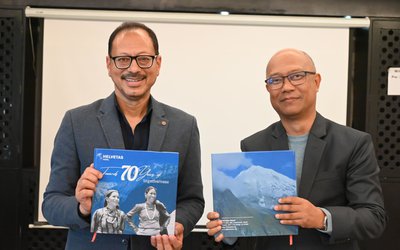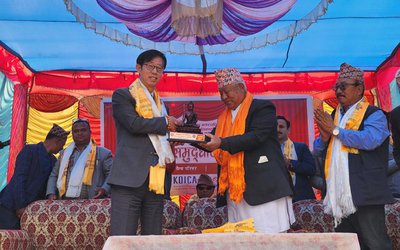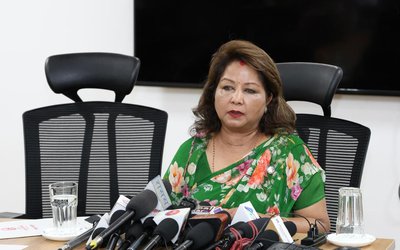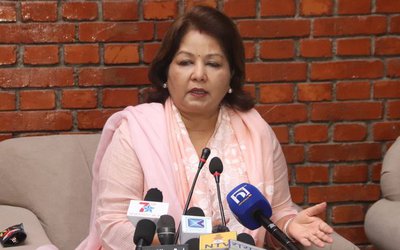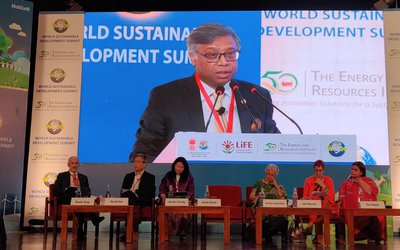
The EU-Nepal Trade and Investment Program (TIP) organized a three-day training on implementing various voluntary international standards for fourteen participants from different sections of the coffee value chain in Nepal. The training provided the coffee experts hands-on coaching followed by field visits to commercial coffee farms.
Coffee is grown in over 40 districts in Nepal, but various sections of the coffee value chain, especially farmer groups, still need to increase productivity, quality as well as volume of production. Nepali coffee growers can improve these factors by implementing the Internal Management System (IMS) that can also help them to access premium markets.
Mim Hamal, programme manager at the EU Delegation to Nepal, said the EU prioritizes the development of the coffee sector in Nepal and anticipates it will help narrowing the country’s increasing trade deficit. “We know the training will provide members of the coffee sector the required knowhow to implement voluntary standards to increase exports to premium markets.”
Many international buyers these days look specifically for certified coffees. In Europe, North America (and South America to a lesser extent), Japan and East Asia, demand for certified coffees has been growing steadily for a number of years. An internal management System (IMS) is a mandatory requirement for many of the certifications.
“Training on issues such as IMS become important as we prepare to expand coffee growing areas in the country by promoting the establishment of coffee estates,” said Dr Bishnu Bhattarai, Executive Director at the National Tea and Coffee Development Board.
Funded by the European Union, the Nepal-EU TIP aims to reduce supply side constraints in processing and quality throughout the coffee value chain, create business linkages for farmers, farmers’ cooperatives and women entrepreneurial associations to expand sales in domestic and international markets, while developing sensitization materials and tools on quality requirements.
“We hope the training will encourage the participants to implement the things they learn to help boost productivity, production as well as exports,” said Narayan Regmi, Joint-Secretary at the Ministry of Industry, Commerce and Supplies. He also expressed commitment to organize similar programs for the benefit of the coffee sector.
- Helvetas Nepal launches Book "Towards 70 Years of Togetherness"
- Mar 13, 2025
- Holi Festival 2025: Importance And Signficant In Nepal And India
- Mar 13, 2025
- Weather Forecast: Generally Cloudy With Rain In Hilly Areas Sudur Paschim, Karnali, Bagmati And Koshi Provinces
- Mar 13, 2025
- Foreign Minister Dr. Deuba Offers Prayers At Baidyanath Dham
- Mar 12, 2025
- KOICA Volunteer Supported Namobuddha Municipality Via Construction Of A Tourist Information Center
- Mar 12, 2025
